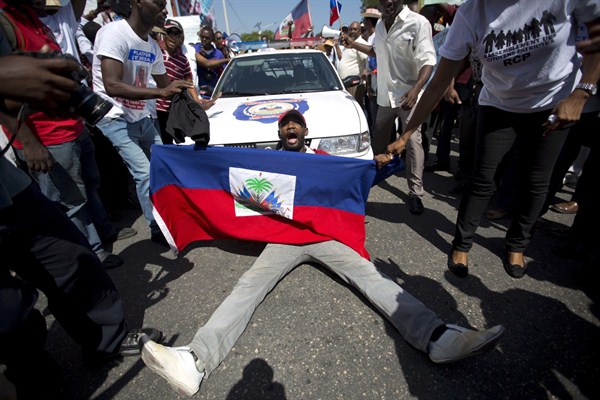On Aug. 9, Haitians will begin a lengthy and long overdue electoral process by voting in the first round of parliamentary elections. On Oct. 25, they’ll vote again in the legislative runoff, as well as in municipal and local elections and the first round of the presidential poll. And finally, if a second round of the presidential election is necessary, as it probably will be, Haitians will go back to the polls on Dec. 27. Over the upcoming election season, Haitians will be choosing 1,280 local representatives, 140 mayors, 20 Senators, 118 deputies and President Michel Martelly’s successor.
The road to these elections has been difficult, and it may still take a detour that winds up in another political crisis. Since the fall of Jean-Claude Duvalier’s dictatorship in 1986, Haiti’s unending transition to democracy has produced fraught elections that are prone to violence. The run-up to elections, the voting itself and announcement of results have consistently generated controversy, foreign intrusion and social tension. This climate has contributed to growing popular cynicism about both elections and governmental institutions. In a recurring cycle, winners seek to monopolize power while losers refuse to accept their defeat, claiming foul and undermining the legitimacy of elected rulers.
The upcoming elections are unlikely to change this scenario. Not only are the elections three years late, but their prelude has been marked by popular protests, the fall of Prime Minister Laurent Lamothe and his government last year, as well as parliament’s dissolution in January. Only the executive branch was left standing, whereupon Martelly began to rule by decree.

